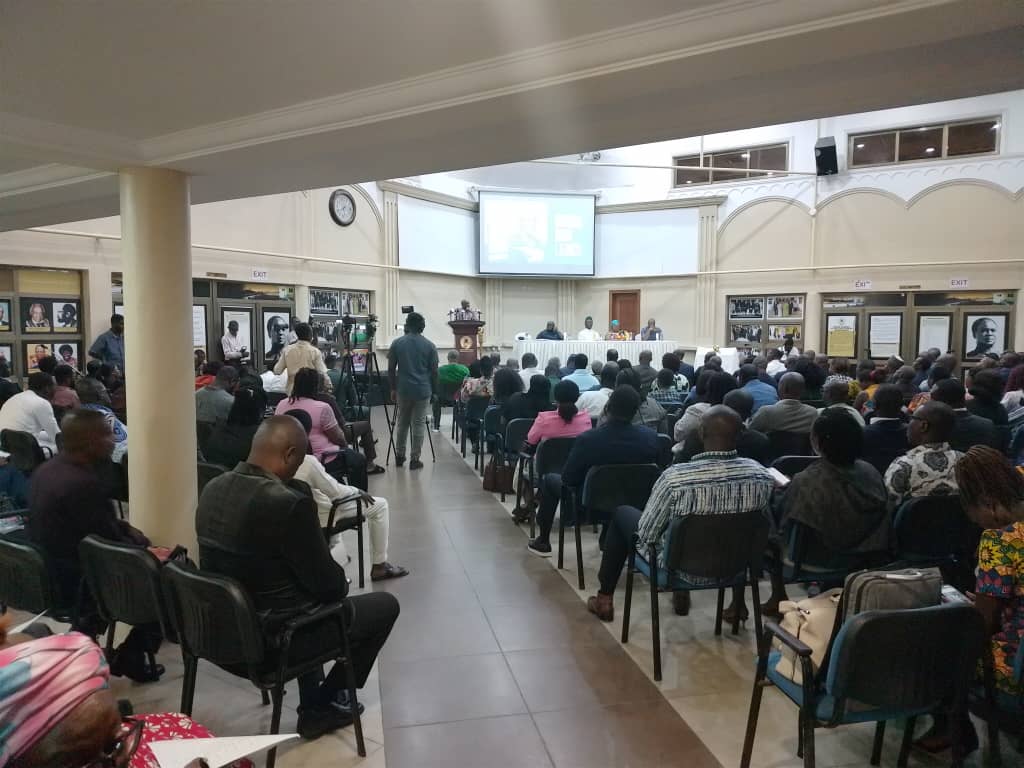Seth Terkper Advocates Simplicity in Ghana’s Tax Regime; Warns Against Tax Distortions at Launch of Book on VAT
Advisor on the Economy to the President and former Finance Minister, Seth Terkper, has called for a simplified and coherent tax system that promotes compliance and ensures sustainable revenue mobilisation. He made the remarks at the official launch of his new book titled “Value Added Tax (VAT) in Africa: The Ghana Experience” at the Ghana Academy of Arts and Sciences in Accra.
Delivering an address at the launch, Mr Terkper, who served as Finance Minister between 2013 and 2017, recounted Ghana’s journey in tax reform and highlighted the need for fiscal policy consistency. He noted that between 2013 and 2016, Ghana undertook a comprehensive overhaul of its tax legislation, culminating in the separation of excise duties and the rewriting of the VAT and Customs Acts.
“The appeal I’m making is that we should allow the pillars of the tax system – in fact, of the fiscal system – to work. If revenue is distorted, expenditure suffers, leading to borrowing and increased debt,” Mr Terkper asserted.

He criticised the recurrent practice of introducing new taxes and levies, many of which he said replaced already eliminated consumption taxes. These additions, he stressed, distort the VAT regime and erode its effectiveness as a broad-based, indirect tax on expenditure.
“When the VAT was introduced, it replaced several consumption taxes. Unfortunately, many of these taxes have returned as levies, undermining the VAT’s integrity,” he noted.
Mr Terkper warned that such distortions have made tax administration cumbersome and reduced taxpayer compliance. He called for a shift in policy focus toward broadening the tax base, improving voluntary compliance, and strengthening the Ghana Revenue Authority’s enforcement mechanisms.
“A complex tax system discourages compliance. If the system is simple and broad, more people can comply without needing tax insurance or costly advice,” he said.
Citing the structure of income tax systems in advanced economies like the US and UK, Mr Terkper urged policymakers to resist frequent and ad hoc tax changes, and instead maintain the simplicity and stability of core taxes.

Touching on equity in taxation, he noted: “In Ghana, people earning the minimum wage are rightly exempt from tax. Similarly, those buying luxury items like a Mercedes S-Class pay more because they have the means. That’s how progressive taxation should work.”
Mr Terkper concluded by urging policymakers to prioritise simplicity, compliance, and administrative efficiency in the ongoing review of Ghana’s tax regime, cautioning that overcomplication will only widen the country’s revenue gaps.
The newly launched book offers a comprehensive account of Ghana’s decades-long journey with VAT, from its failed introduction in the early 1990s to its reimplementation in 1999, and the subsequent reforms that have shaped the current VAT system.
Mr Terkper documents the frustrations, challenges, and policy reversals encountered in Ghana’s VAT implementation process, and provides insights into how secondary levies continue to undermine the regime’s efficiency across Africa. The book also offers recommendations for strengthening VAT administration and making it the ideal general consumption tax on the continent.
The event was chaired by former Finance Minister, Kwame Peprah, who led Ghana’s fiscal affairs from 1995 to 2001. A review of the book was delivered by Abeiku Gyan-Quansah, Senior Partner at PwC, who praised the work for its depth, relevance, and policy value.








